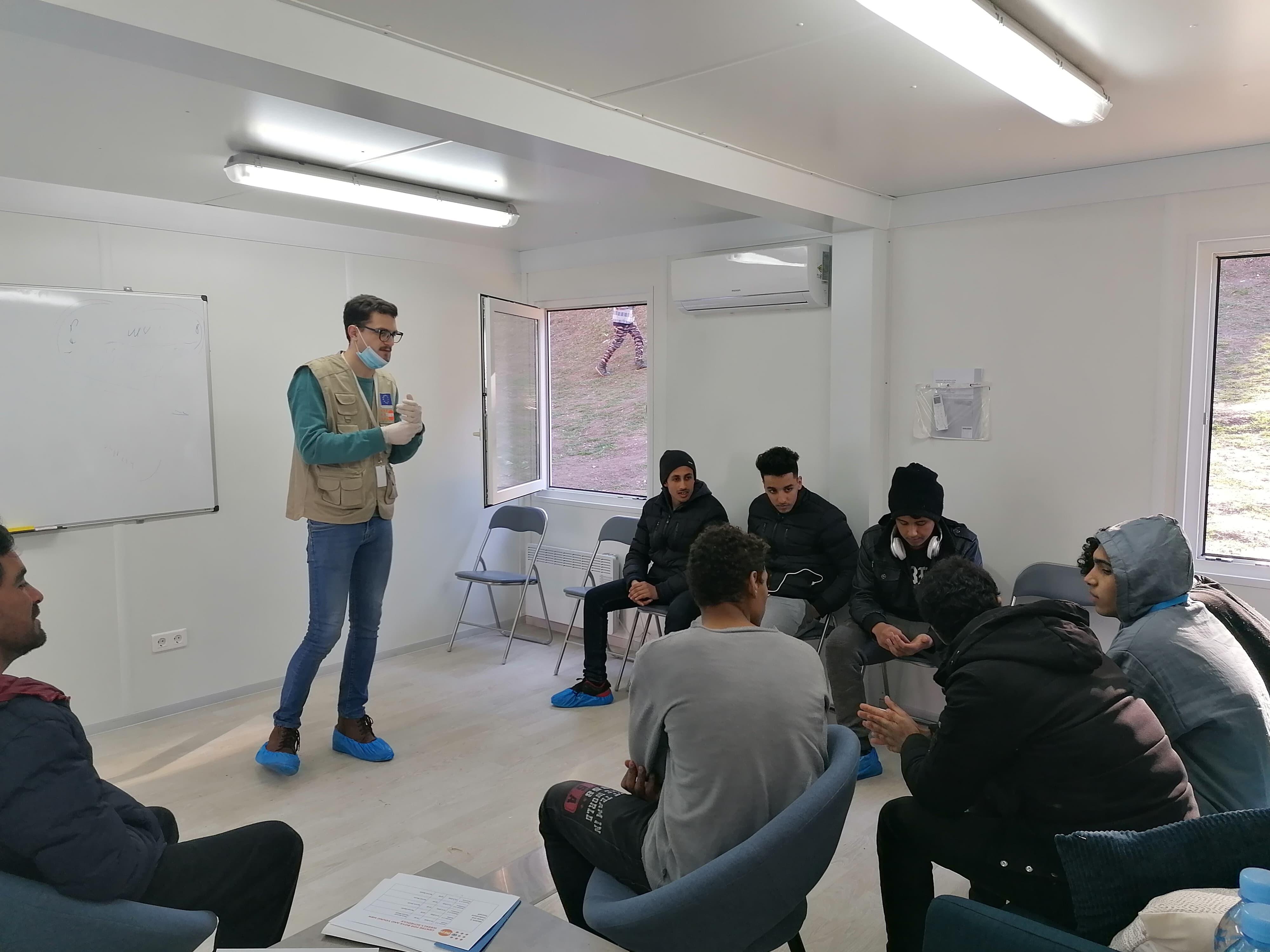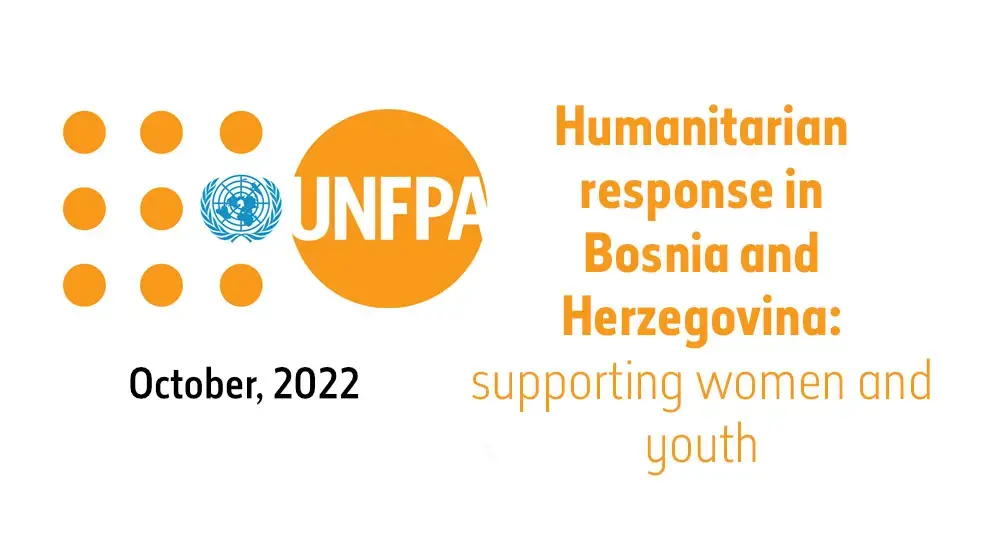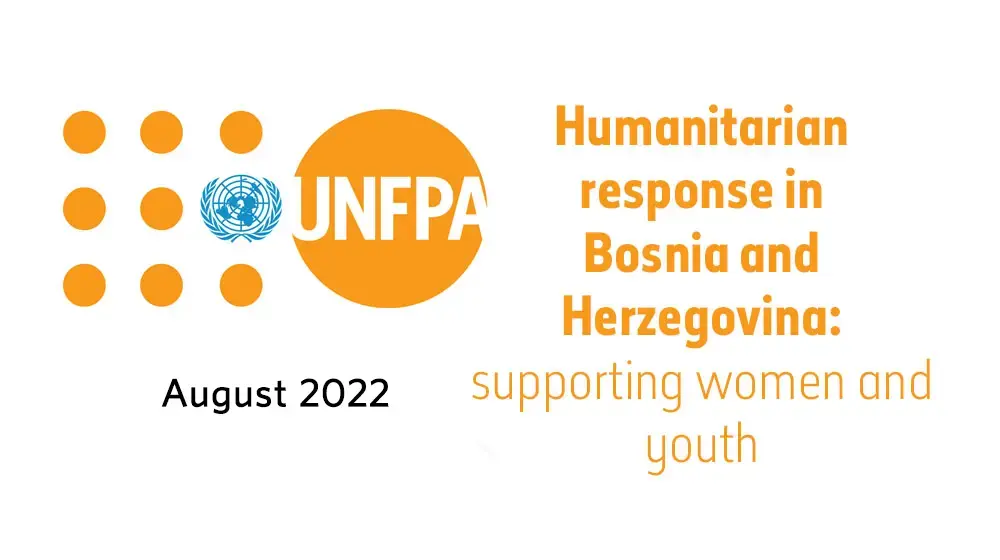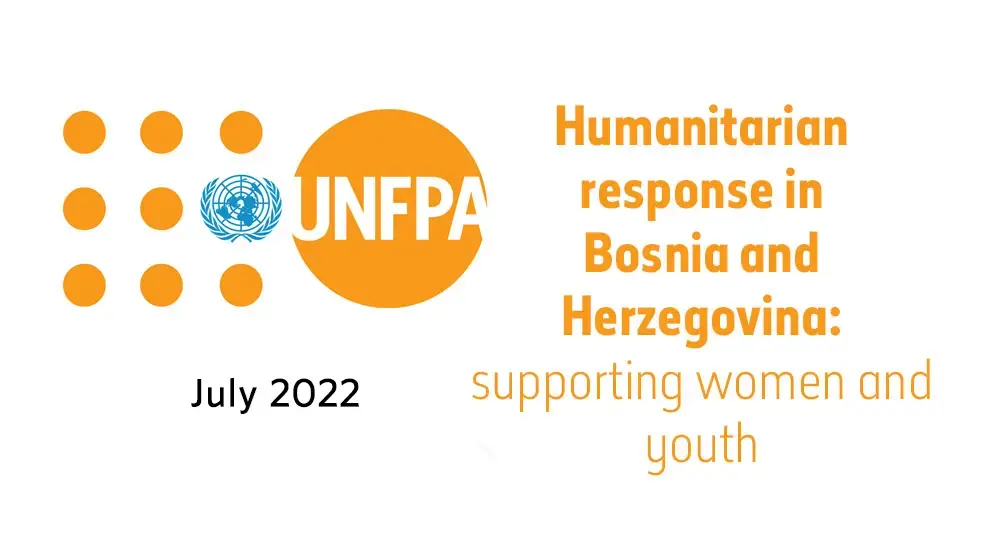The European Union, UNFPA, IOM and partners are continuing to work together to provide support to the authorities in Bosnia and Herzegovina in managing the migration situation in the country.
As boys and young men account for a large portion of migrant population in Bosnia and Herzegovina, this group is faced with a heightened risk of abuse, neglect, violence, and sexual and labour exploitation as well as other threats related to migrations. With support from the European Union, UNFPA has established three centers in Bosnia and Herzegovina, which apply the Boys on the Move methodology to engage with youth. Boys on the Move is an informal life skills education model promoting health and wellbeing, developing critical thinking skills, as well as raising awareness about human rights and gender equality. In addition, at the centers, young men are learning about other cultures but are also equipped with literacy and vocational skills, increasing their eventual employability. During the period between March and June, close to 3000 participations in the activities of the centers were registered.
Amer Džekman, an Empowerment Officer in the Center, has provided insight into this specific activity and explained the way in which a unique relationship of trust is being built with the participants and how knowledge and skills are transferred to them. “A friendly approach is at the core of each process of our work with young men at the camps. Once the trust is built, they become active participants of our sessions. The young men at the camps were primarily interested in health, good personal hygiene, mental health, and wellbeing. In addition to the sessions which are fully tailored to the young men at the camps, it is important to be available for other questions they may ask because this is the only way in which they can accept you as a person whom they trust.”
“The sessions which I attend at the Center are great because I can spend useful time at the camp. I have an opportunity to ask questions and say what I think. I have learnt a lot about health in general”, said one young migrant, a participant at the center. A second migrant, also a participant, added, “We need more of it. I learn something new each time. In the past, I had no opportunity to ask questions. I like the patience and approach of the trainers”.
A seventeen-year-old from Egypt has told us that the sessions organized at the Center helped him improve his communication skills with his family, friends, and acquaintances. “I have learnt the rules of conduct, how I can integrate in European countries and also how important it is to respect women”.
A nineteen-year-old from Afghanistan has said that the “Boys on the Move” project was helpful to him in a number of ways; he has learned a lot about different cultures on the European continent, teamwork but also about sexual health and respect for the opposite sex. “This kind of education is not available in our country”, he said.
Informal education can build competencies, adaptability, and resilience in boys and young men experiencing changing and challenging circumstances. “It is crucial that young migrants are not overlooked in post COVID-19 recovery efforts and that they are given opportunities to acquire skills to successfully manage evolving challenges and resilience to adapt to future disruptions” stated Mr. John Kennedy Mosoti, UNFPA Representative for Bosnia and Herzegovina.
The project “EU Support to Migration and Border Management in Bosnia and Herzegovina” is funded by the European Union through an Instrument for Pre-Accession Assistance (IPA) special measure and is implemented by the IOM in partnership with UNFPA, UNHCR, UNICEF and Danish Refugee Council (DRC).





